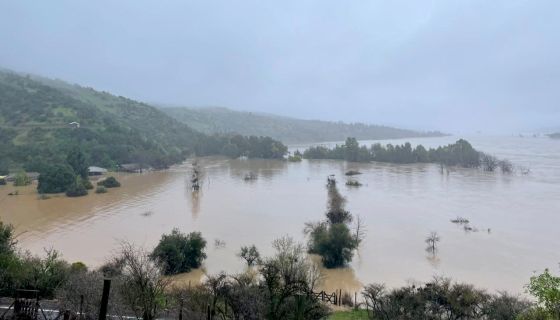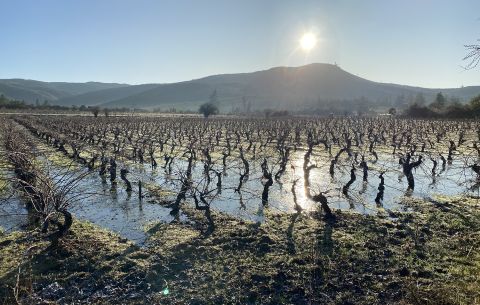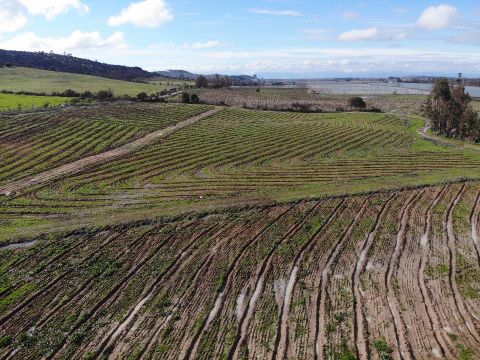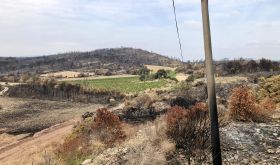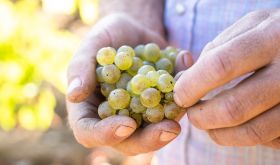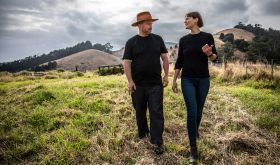29 August 2023 Just six months after fire raged across southern Chilean wine country (see Itata on fire), Maule is now facing record floods. Derek Mossman Knapp, of Garage Wine Co, reports.
On 21 August we suffered the heaviest rainfall recorded in over 50 years. In 24 hours, 150.2 mm (5.9 in) fell, smashing the previous record of 84.3 mm in 1963. The rivers in Maule rose to their highest level ever recorded, breaking their banks to wash away crops, submerge thousands of homes, flood vines and, in at least one case, submerge an entire winery to the roof beams.*
Global warming is the cause of both tragic phenomena.
Last week a winter storm brought a larger-than-normal front of precipitation. When the front landed and began to rise into the mountains, the frost point was higher than normal due to our ever-warmer winters. Twenty-five years ago a big snow would have meant a great ski season. Now what once would have fallen as winter snow in the Andes fell largely as rain.
Snow would have taken months to melt. Local rivers and canals would have begun to run high gradually in the spring, providing meltwater for agriculture for months and months as the melt point moved higher and higher into the mountains. Over the last week a runoff came prematurely, and all at once. Many have suffered. The initial estimates of damage to agriculture and crops stands at over $1 billion. Tens of thousands of people left their homes leaving appliances perched high on furniture in hopes they would be spared.
Here in Calivoro, in the Maule, we took a recently arrived WWOOFER (World Wide Opportunities on Organic Farms volunteer) for a paddle in a canoe over one of our vineyards. She could not believe what she saw.
It’s important to note that most old vineyards affected will completely recover. The real damage has been to houses and to fruit and vegetables – young plantings of cherries, prunes, hazelnuts and greenhouse vegetables. The corporate farms will be insured and the small will not be. The question is: will anyone learn to do anything differently in future?
Evidence suggests probably not. Some large-scale operations have even contributed to the dangers and damage of flooding by removing the gullies of natural watersheds to plant their orchards at higher density. For years they have been stripping the slopes of indigenous plants without concern for drainage.
As weather events continue to grow more unpredictable and extreme, perhaps the old vines can teach us something. In some areas, such as next to the Perquilauquén and Purapel rivers (to name just two that were severely affected last week), the vineyards regularly flood. Even if the vines next to these rivers have never seen such high water in their lifetime, with their deep roots and reserves developed over a long life, they will spring back with the sunshine of September. How is it that old vines survive?
And how can water be better managed?
Alan Savory, a pioneer in regenerative agriculture, calculates that for every increase of 1% of organic matter in the soil, a hectare absorbs more than 150,000 litres of water. This parallel benefit to the sequestering of carbon provides a powerful argument for regenerative agriculture.
Keyline planting, employing the natural contours of the land, is another tool used in regenerative agriculture to maximise water resources. Why has this never become a thing? What is it with straight lines and big machinery? If the earth is not flat, why must agriculture be so straight?
It’s time to take regenerative viticulture and agriculture seriously.
*See this Gofundme of González Bastías, who provided the image at the top of this article.

